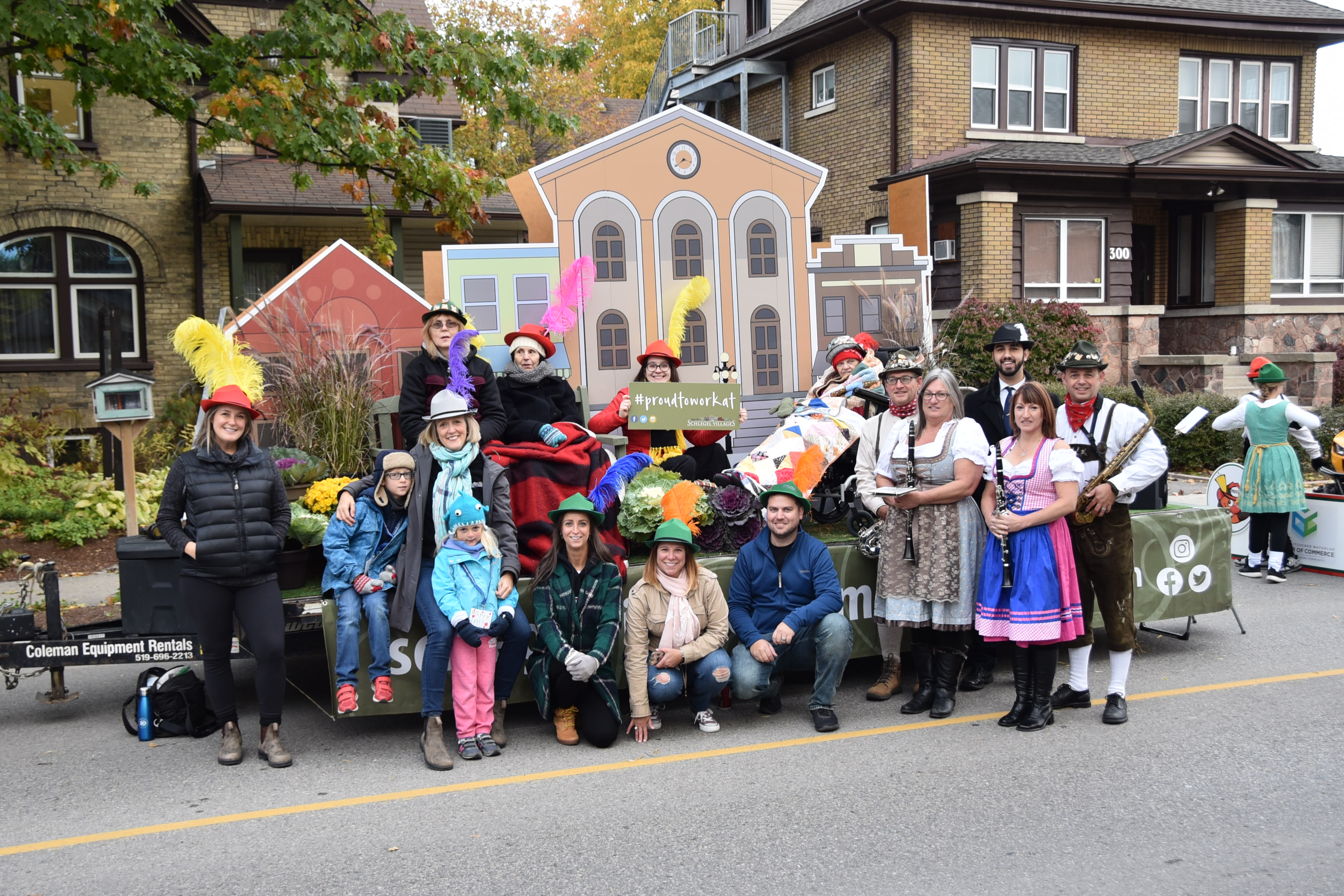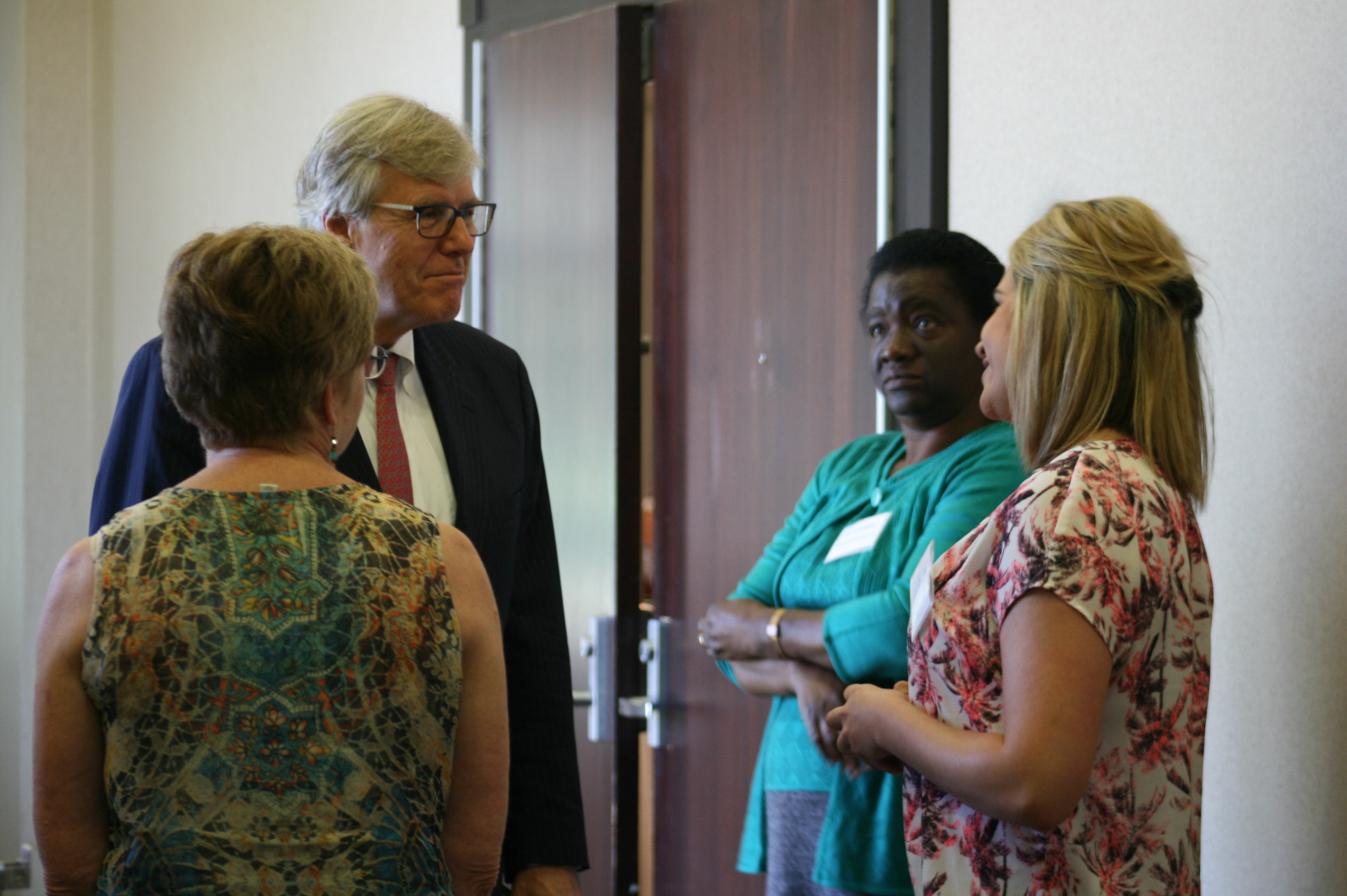One of the great challenges facing caregivers who support people living with dementia is the complex behavioural changes and mood shifts that can seemingly occur out of nowhere among those living with the changing nature of the disease. The province of Ontario, for example, invests heavily in Behavioural Supports Ontario (BSO) teams of specially trained caregivers who help address these fluctuating personalities, and anyone who works in such settings knows how difficult this can be at times.

Connectedness is one of seven domains of well-being that
helps create a life of meaing for all people, regardless of age.
Schlegel Villages prefers to look at these changes as personal expressions, and has created Personal Expressions Resource Teams (PERT) as a complement to BSO specialists. A cornerstone of the PERT philosophy is the fact that a person living with dementia expresses themselves in different ways as an indication of emotions they feel in the moment, reactions to their environment or problems they may perceive. The disease, however, has removed some of the social filters people have developed to create “acceptable” forms of expression and the results can be seen as outburst of aggression, anger or intense sadness – some of humanity’s most difficult emotions in any setting.
A breakout session during this year’s Innovation Summit encouraged people to look past the actual expressions to the root causes in the form of seven domains of well-being. Simply put, when these domains are not fulfilled, especially in someone living with dementia, they’ll express their frustration or lack of fulfillment.
Dr. Allen Power, Schlegel Chair in Aging and Dementia Innovation with the Schlegel-UW Research Institute for Aging, introduced the session and the Eden Alternative Domains of Well-Being℠ for people to consider:
- IDENTITY—being well-known; having personhood; individuality; having a history
- GROWTH—development; enrichment; expanding; evolving
- AUTONOMY—liberty; self-determination; choice; freedom
- SECURITY—freedom from doubt, anxiety, or fear; safety; privacy; dignity; respect
- CONNECTEDNESS—belonging; engaged; involved; connected to time, place, and nature
- MEANING—significance; heart; hope; value; purpose; sacredness
- JOY—happiness; pleasure; delight; contentment; enjoyment
He looked back to his time researching a book on the subject, Dementia Beyond Disease: Enhancing Well-Being.
“As I was discovering how important well-being was and how often it’s lost in people living with dementia,” Al said, “not only because of the disease but because of our care practices, I got this idea that maybe a lot of these personal expressions, a lot of the distress we see, is actually due to the fact that people are without these very important aspects of well-being that all people need, regardless of age, ethnicity, national origin, medical illness or wellness.
“We all need these different aspects of well-being and yet there really was no professional training out there that taught about these or how we can operationalize these in daily care and support.”
He began to develop a simple exercise for caregivers to try during his seminars in countries around the globe. He would ask someone in the session to bring forth a complex and challenging case scenario they would then discuss as a group. They would break into seven groups, each with one domain to consider and a flip chart, and they would draw a drinking glass to represent the domain. After hearing about the person in question, Al would ask the group: “How full is this person’s glass?”
He’s taught this class in a dozen countries with hundreds of people and each time, he says it’s rare for even one glass to be at 30 per cent; most are nearly empty. “These are talented people who are doing everything they’ve been taught to address these personal expressions and yet, here are seven areas of life-giving need that our system does nothing for,” Al said.
“Is it any surprise that this person is still not happy?”
His seminar suggests people look past conventional training and the urge to “fix” the expression, which is what most approaches teach, and instead put it aside and just fill the glasses all day.
“While you’re not looking,” he says, “all of a sudden, it’s amazing how often those expressions disappear because the root cause, which is not dementia but the lack of well-being, has actually been addressed.”
More Village Voice stories to come highlighting this approach in action . . .
- Previous
- View All News
- Next


























































































































































































































































































































































































































































































